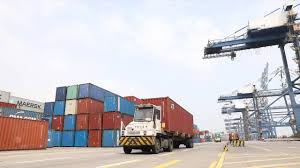
Ghana’s diplomatic mission in the Netherlands has launched a concerted effort to transform the country’s trade relationship with one of Europe’s largest economies, emphasising value-added exports over raw commodity shipments.
Deputy Head of Mission and Head of Chancery, William Charles Manful, outlined the strategy during the 2025 Netherlands-Ghana Business and Tourism Expo at The Hague University of Applied Sciences, held from September 18-20 under the theme “Partnership for Growth: Trade, Innovation and Sustainability.”
“The trade situation between the two countries seems to be favoring the Netherlands.
We have to try and correct that,” Manful said, highlighting the need for Ghana to transition from exporting unprocessed materials to finished products.
Bilateral trade currently amounts to approximately €2.8 billion annually, with Ghana exporting gold, cocoa beans, timber, and agricultural products, while importing refined petroleum, machinery, and manufactured goods.
Ambassador Francis Danti Kotia identified visa processing delays and frequent denials as significant barriers, noting that only four out of ten Ghanaian business applicants attending the expo received Dutch visas. “We have genuine business people who are interested in coming to the Netherlands to do genuine business work, and yet they are denied,” Manful said.
The diplomatic mission has made economic diplomacy a central focus, tying foreign service performance indicators to securing trade and investment opportunities. The expo offered Ghanaian entrepreneurs the chance to network with Dutch investors and diaspora communities, with investment pledges starting from as little as €5,000 for agricultural initiatives.
Manful also highlighted cultural diplomacy, announcing plans for a Ghana Film Festival in the Netherlands to reshape perceptions of the country and attract strategic interest. “We are using culture to change the narrative so that people will take a more strategic interest in Ghana,” he explained.
The value-addition push complements Ghana’s domestic industrialisation programs, including the One District, One Factory initiative and the establishment of industrial parks.
Despite structural challenges such as infrastructure gaps and limited access to technology, the partnership with the Netherlands offers opportunities for technology transfer, market access, and sustainable economic growth.
By prioritising small-scale investments, value-added production, and cultural engagement, Ghana aims to correct trade imbalances, diversify its export base, and build long-term economic resilience, aligning with broader African Continental Free Trade Area goals.
The expo continues through Saturday, providing a platform for Ghana to showcase its industrial potential and foster mutually beneficial trade relationships with European partners.



